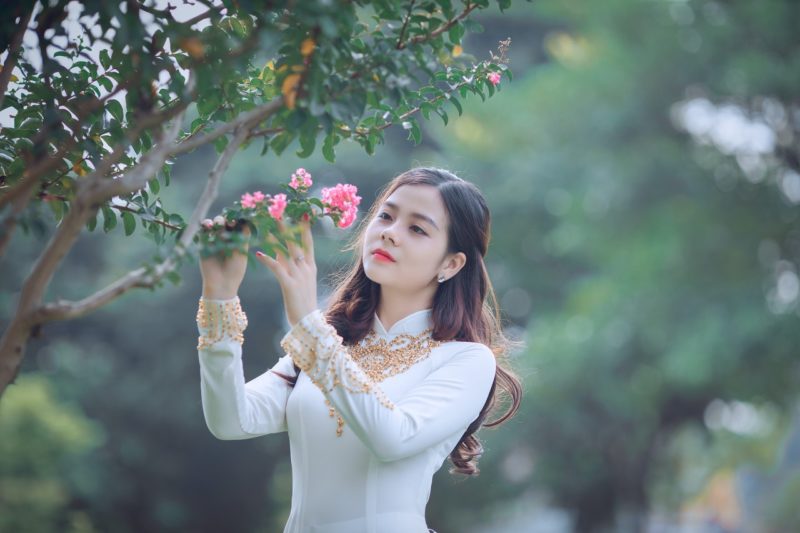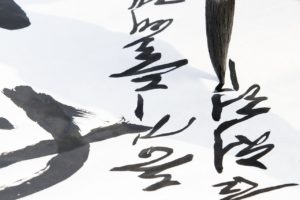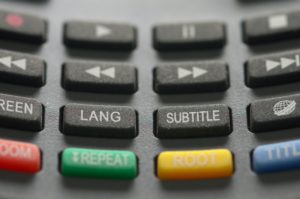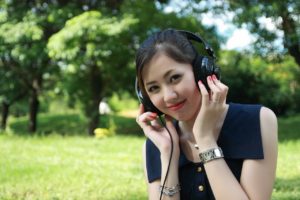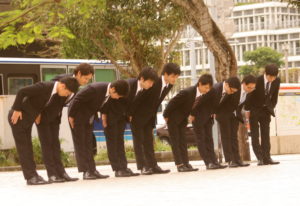Language provides a window into the soul of a culture. Sadly, not everything translates. There are often ideas, feelings, or situations that are unique to a specific language and untranslatable. Rather than come up with an English version of them, we simply adapt those words into our language as they are. This list of 18 beautiful Korean words without an English translation will help illustrate how unique the language is.
Remember: these aren’t just pretty Korean words and expressions. They provide an unfiltered insight into Korean culture. And if you want to speak like a local, then you’ll want to familiarize yourself with them. Dropping them casually (and correctly) into a conversation will go a long way to illustrate how fluent you are.
1. Han (한)
“Han” is a mutual feeling of sorrow, and injustice is a notion that is mostly considered unique to Korea. It’s a cultural phenomenon from the extensive history of attacks and civil wars from other countries in the country. The Los Angeles Times also defines them as “a notion as amorphous as love or hate: deeply personal but collectively passed around, a national torch, and a symbol of pain balanced by a sense of resilience.”
2. Hyo (효)
“Hyo” related to Korean cultural concepts of devotion. It denotes the intense sense of duty and responsibility that children must always pay to their parents. Even if it means making significant sacrifices in the children’s life. “Hyoja (효자)” stands for devoted son, and “Hyonyeo (효녀)” is a devoted daughter.
3. Noon-chi (눈치)
This term defines the art of being in touch with other people’s feelings, ideas, and emotions to engage and respond to a situation correctly. Anyone who has strong “noon-chi” can read the body language or voice tone of other people to understand their true feelings. A person who has this skill is “눈치가 빠르다 (noonchiga bbaleuda).
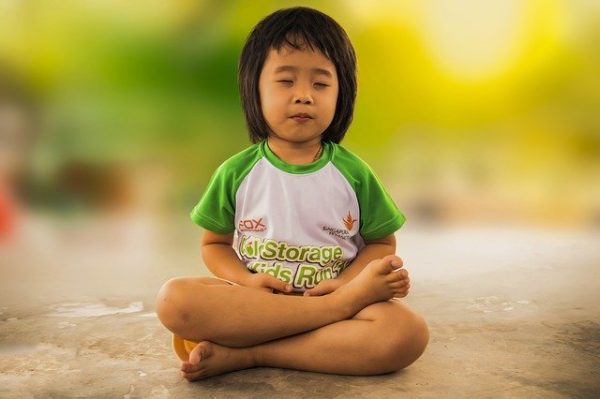
4. Jeong (정)
While “Han” defines the unique form of Korean misery and victimization, “Jeong” is the original and unique form of social ties. Sometimes it translates as “harmony” or “unity.” So much so that Koreans often find it difficult to define. “Jeong” refers to the psychological and emotional ties that bind Korean society. It permeates all steps in the process, analyzing the landscape to varying degrees of “woo-ri” (us versus them).
5. Dab-jeong-neo (답정너 )
“Dab-jeong-neo (답정너)” is an abbreviation of “Dapun jeonghaejeo itgo neonun daedamman hamyeon dwae (답은 정해져 있고 너는 대답만 하면 돼)”, which means the answer is already determined, and you just need to give that answer. “Dab-jeong-neo” implies a circumstance in which someone asks a query, but they have already decided an answer before hearing the reply. For example, if a wife asks her husband about her appearance, then the husband may think himself in a “dab-jeong-neo” situation.
6. Dab-dab-hae (답답해)
While “dab-dab-hae” has several different meanings, including “airless” or “suffocating,” it is frequently used metaphorically to describe the physical sensation of suffocation triggered by agitation. It is the inability to speak or act more freely in a situation. For example, someone who’s trapped in “sseom-ta-d”a (defined later in the article) may experience “dab-dab-hae”. It is a concept that is often used in Korean dramas. When you’re dealing with language learning anxiety, there are some simple tricks to avoid “dab-dab-hae”.
7. Eom-chin-a (엄친아 )
Korean mothers are stereotypically competitive and sometimes compare their children to their friends’ children. “Eom-chin-a” simply means “the son of a friend of your mom.” “Eom-chin-a” used to describe someone better and more talented than you are. However, today this word means something much different. “Eom-chin-a” describes a type of a guy who came from a decent family, never caused any troubles. He went to a good school, and now has a successful career.
8. Sseom-ta-da (썸타다)
You know the awkward stage of dating, where you’ve seen each other casually, but you haven’t formed a relationship yet? It’s the scenario that the Koreans call “sseom-ta-da”. Many believe that “sseom-ta-da” came from the English word “something.” It means that “sseom” is going on now. And it will ta-da or “go along” until something more serious happens.

9. Ttee-dong-kab (띠동갑)
The Chinese Zodiac is on a twelve-year cycle. Every year in the period, a specific animal symbol defines the year. Each animal has certain features, and it assumes that someone born in that year has the same traits and attributes. The word “tee-dong-kab” refers to the two individuals who share the same Chinese zodiac sign. For instance, someone would be the Chinese year of the dragon if he or she was born in the year 2000. Kpop idols G-Dragon and Nickhyun are “ttee-dong-kab” because they share the same birth year.
10. Nae-soong (내숭)
This word defines someone who is not real. A fake person. It often uses to refer a woman who behaves timidly or naively around others – people, more specifically man. When he’s not present, she returns to her usual self.
11. Nunchiga ppareuda (눈치가 빠르다)
“Nunchiga ppareuda (눈치가 빠르다)” means observant. The term defines someone who can comprehend that something is happening to someone (e.g., friends or family). It’s one of the many beautiful Korean words without a translation. For example, you have dinner with your parents, and you immediately feel something is up with them. Perhaps they argued. You can’t say they’ve fought for sure, but you can feel it.
12. Aegyo (애교)
“Aegyo (애교)” is someone who acts adorably to seem sweet and attractive. Women are generally using this practice, and so are many Korean men. It’s a big cultural trend in Korea right now.
13. Ondol (온돌)
The literal meaning of “ondol” is heated rock. (Actually, it’s underfloor heating). It describes the process of direct heat transfer from burning wood to heat the surface of a thick stone floor. “Ondolbadak” is an alternate term of “ondol”. For example, Koreans used to use “ondol” and were able to stay warm during the winter.
14. Nunchiga eopda (눈치가 없다)
“Nunchiga eopda (눈치가 없다)” means clueless. Somebody who can’t read the air, or slow to understand a situation. An example of that is the following situation. You’ve met your buddy while you’re walking with your girlfriend. You want him to go now, so you’ve given him hints that he should go. However, he’s so oblivious that you ended up having dinner together.
15. Eoieopda (어이없다 )
“Eoieopda (어이없다 )” implies unbelievable. The definition varies slightly depending on the scenario. It could also mean “What the heck,” “I can’t believe it,” and “beyond common sense.” For example, You’re about to get out of work, and then your supervisor comes and brings more reports to work. You may say to yourself “Eoieopda (어이없다 )”.

16. Hyodo (효도)
“Hyodo” is one of the most beautiful Korean words in the Korean language. It refers to dedicating yourself to your parents by taking good care of them until they die. For instance, anything that you do to give your parents love or gratitude is “hyodo”. For example, if you use your savings to take your parents on an overseas trip, that’s a duty-filial trip.
17. Gaeideuk (개이득)
To translate these untranslated Korean words into English, consider this following. “Gae (개)” means a dog, and “ideuk (이득)” means a reward or profit. Young people in Korea use “gae” to imply that it was a great deal.
18. Dapdapada (답답하다)
“Dapdapada (답답하다)” means feeling frustrated. You can use this expression when a situation does not go as planned. For example, you’ve just hired a new intern, and she’s just completed training. It’s been a couple of months, and though you’ve attempted to explain a few things to her, she still makes a lot of mistakes. You may say “dapdapada”, in this situation.
Learn Korean for More Beautiful Words
If you want to truly experience how beautiful Korean can be, you need to learn more than just these words. There’s a whole world of different mindsets and perceptions out there. Reach Korean fluency easily with OptiLingo.
This mobile app is convenient and extremely effective. By showing you high-frequency words and phrases, you’ll see how the locals speak. And you’re guaranteed to remember your lessons with OptiLingo. Download the app today to discover how much fun learning Korean can be!

